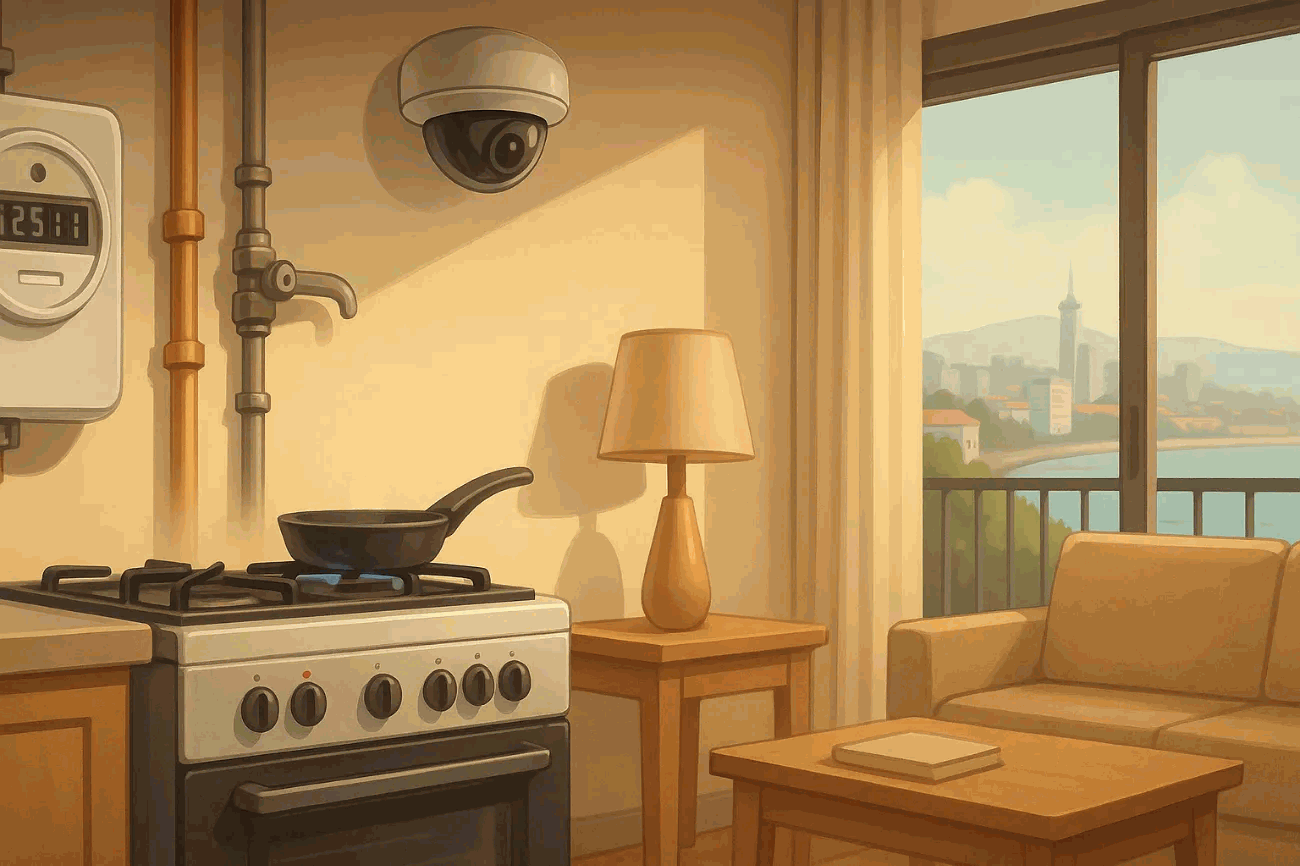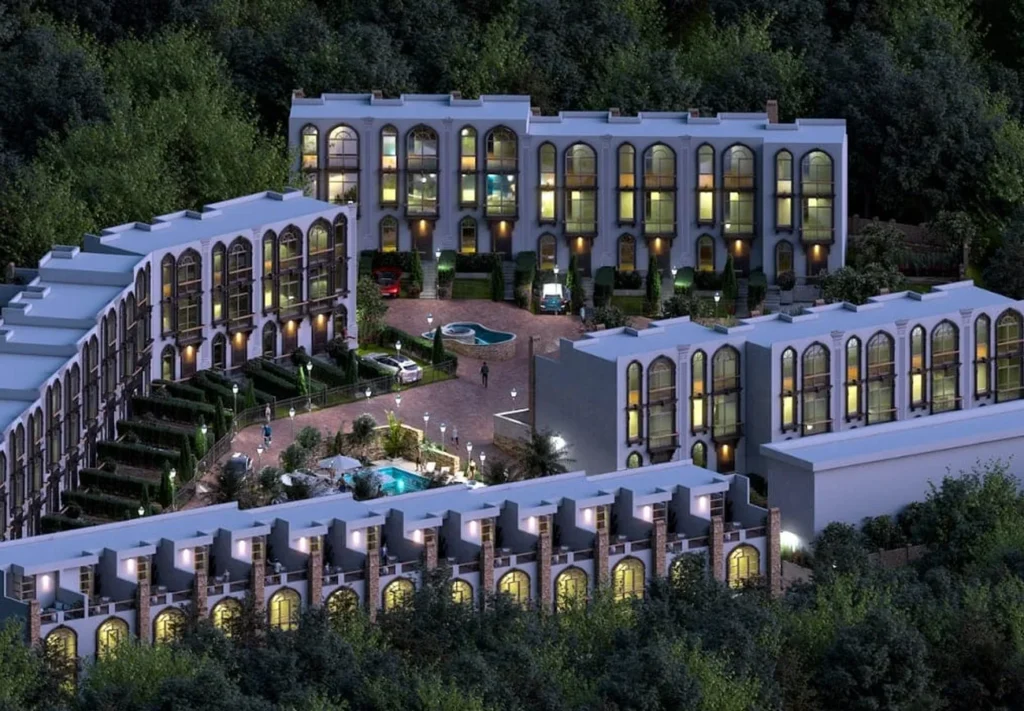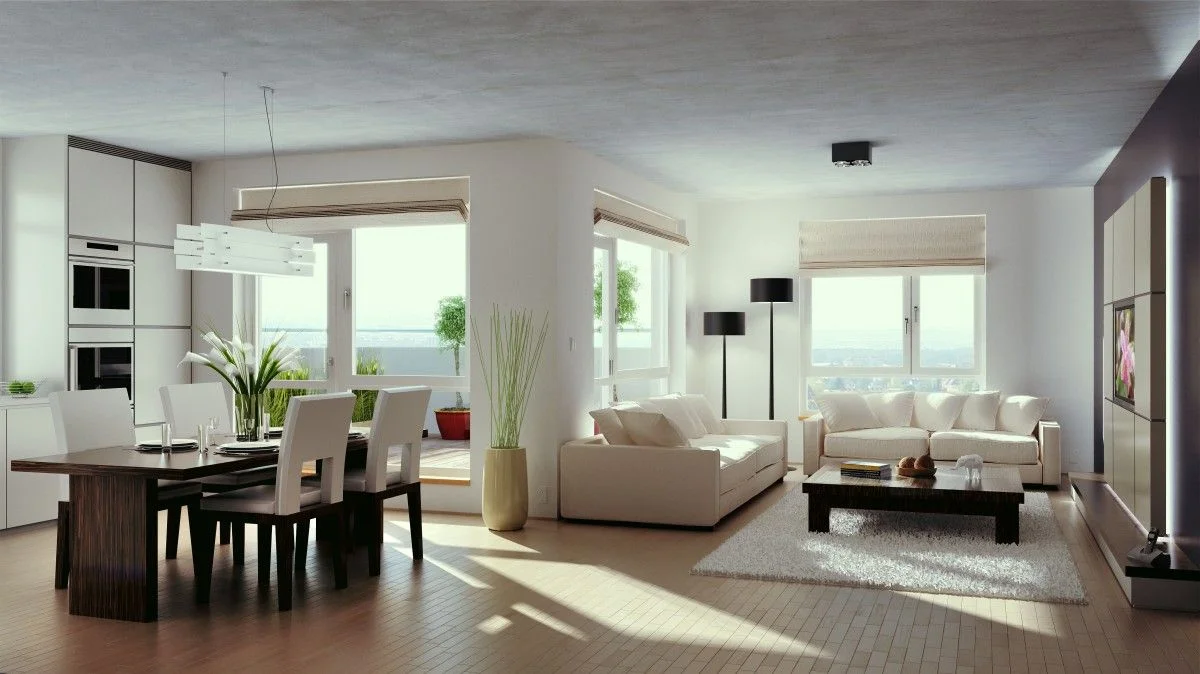Why account for all costs
Owning property in charming Georgia, many buyers often assume that buying is the hardest part. However, the real game begins after the transaction. Even if the deal seems favourable, property maintenance can creep up like a silent thief and stealthily "eat" 20-30% of the original cost. On this basis, full cost accounting - Not just a squint at the details, it's a necessity for budget planning.
Why it's important.
- Taxes and seasonal payments. Taxes, major repairs and insurance are often forgotten, disrupting financial plans. For example, property taxes can amount to up to 1% of the assessed value of the property, which per year can be on the order of 500-1000 $ depending on the land and building. You can find out more about taxes at official website of the Tax Service of Georgia.
- Buy-to-let. When a property is purchased with the intention of renting it out, accounting for additional expenses becomes even more important. From utility bills to the management company, everything needs to be handled correctly. The management company can take up to 25% from rental income as payment for their services.
- Apartment complexes and seasonal adjustments. If your property is in an apartment complex or a popular resort area, maintenance costs can increase significantly during the summer months. For example, cleaning and maintenance costs can increase to 200 $ in season.
To minimise unexpected costs, it's worth planning your annual budget in advance, including all potential expenses from necessary payments to the occasional incident. This way, you'll not only save your nerves, but you'll also be able to enjoy ownership without unnecessary financial stress.
Monthly utility costs
When it comes to real estate in Georgia, you can't overlook utility bills, which will be an important line item in your monthly budget. This section will help you understand the major expenses so you can plan your finances more efficiently.
Electricity, water, gas, rubbish removal
Every Georgia resident faces the need to pay for basic utilities. Let's take a closer look at them:
Electricity: The average tariff is approx. $0.06 per kWh. This can vary by region and supplier, so it is advisable to check the current rates on the website GNERC.
Water: The rate ranges from $0.12 to $0.18 per m³. In larger cities such as Tbilisi and Batumi, the cost is usually a little higher.
Gas: The approximate price is $0.20 per m³. Rates may vary by season and region.
Rubbish removal: Monthly fees range from $1.80 to $3.60 depending on the location of the dwelling and municipal regulations.
These expenses are important to know in advance to properly calculate your monthly budget.
Internet and television
Nowadays it is hard to imagine a modern home without access to internet and television. The main providers, such as Silknet, Magti and GlobalTV, offer a variety of packages, with prices starting at $11 to $25 per month. More information can be found on the following websites Silknet и Magti.
Often providers offer combination packages including IPTV, which can save you money.
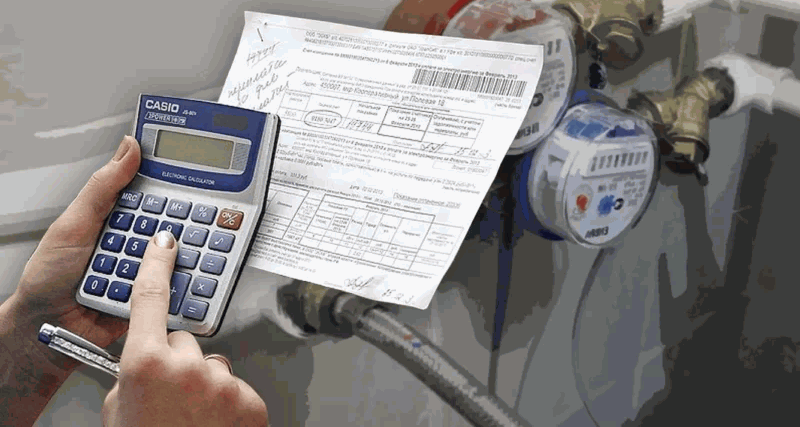
Maintenance of houses, residential buildings, lifts, security services
Those who live in new buildings should take into account the costs of maintaining common areas: security, lifts, concierge services, etc. Usually the rate is from $0.35 to $0.70 per m². In secondary market homes, these fees are minimal or non-existent. For exact amounts, please contact the management company or the housing association.
Video surveillance and entryway security
Modern homes and holiday resorts often have CCTV and access control systems installed. These services can cost $3.50-$7.30 per month. This not only increases security, but also makes the dwelling more attractive to tenants.
Knowing these expenses will help you more accurately estimate your monthly financial obligations and avoid unexpected spending in the future.
Annual and recurring expenses
Planning for annual and recurring expenses for Georgia property owners is key to successfully managing costs and minimising unexpected financial burdens. Let's break down the major categories of these expenses in more detail so you can plan your expenses with more confidence.
Property tax
Property tax plays a significant role in the expenses of property owners. It is calculated as a percentage of the assessed value of your property and can be as high as 1%. This tax applies if your annual income exceeds $14,300 or if you rent out your property. You can find out more about taxes at official website of the Tax Service of Georgia.
Property insurance
Property insurance in Georgia is voluntary but highly desirable. The insurance rate varies from 0.1 to 0.5% of cost per year. The policy can cover risks such as fire, flood and theft. This investment will help you avoid significant costs in the event of force majeure. You can find the most up-to-date information about insurance offers on the following websites Ardi Insurance и GPI.
Repair and maintenance
Accumulative repair and maintenance costs are necessary to keep your property in good condition. Minor expenses, such as plumbing and electrical repairs, can amount to $70-$180 per year. A major overhaul, which is done every 7 to 10 years, will cost you from 100 USD per m². Owners of "secondary" should pay special attention to this.
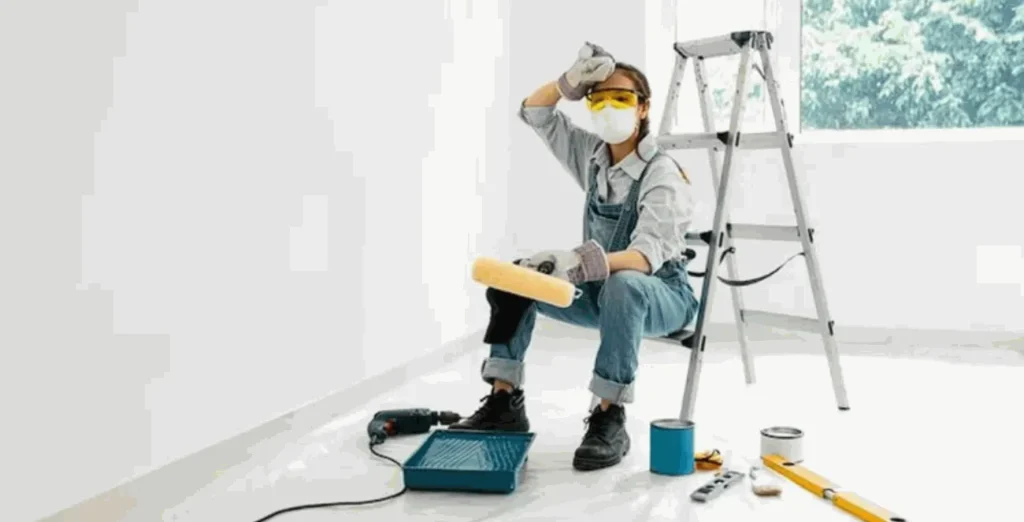
Capital repair fund (in new buildings)
The capital repair fund is accumulated to cover the costs of roof, façade and lift repairs. The amount of the contribution may be 0.2-0.5 USD per m² per month. This fund is not regulated by the state; terms and conditions are set by the Housing Authority.
Amortisation and depreciation of finishes
Don't forget about depreciation and wear and tear on your home's finishes. The average depreciation is 1% per year of repair costs. Every 7-10 years, the kitchen, hardwood flooring, windows and plumbing may need to be replaced.
Each of these items requires careful consideration and analysis to avoid unexpected financial surprises. Preparation and planning will help keep your budget balanced and stable.
Costs of registration and maintenance of property rights
Purchasing property in Georgia does not end at the purchase stage. It is important to understand and plan for the costs of registration and further maintenance of property rights. This will help to avoid unexpected difficulties and additional costs.
Registration in the public register
Registering your property is a compulsory step that is done through House of Justice. Standard registration will cost you 17.5 USDwhile the express service will cost you 70 USD. This is necessary to legally confirm your rights to the property. You can find out more about the procedure and costs on the website Public Service Hall.
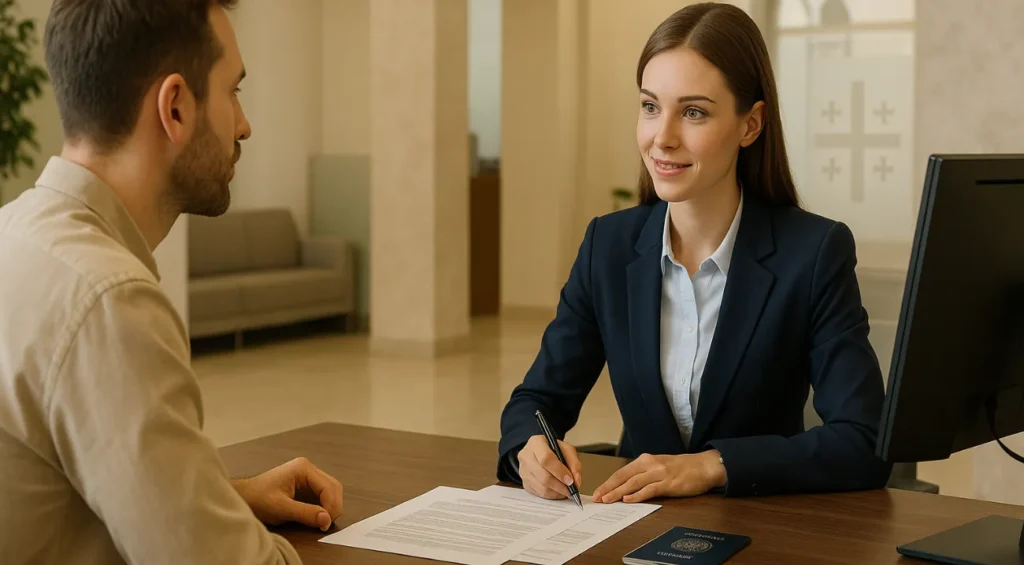
Notary and technical documentation
The services of a notary and the execution of technical documentation are mandatory when buying a property. These services include document verification, surveying and certificates. The cost may vary from 35 up to 105 USDDepending on the complexity of the transaction. In the case of new buildings, acceptance certificates and technical passports will also be required.
These costs should be factored into your overall property purchase budget to reduce the risk of unexpected financial hardship.
Taking all these aspects into account will not only simplify your buying process, but will also ensure that your rights as a property owner in Georgia are legally protected.
Specificity: flats, flats, houses
When choosing and maintaining property in Georgia, it is important to consider the specifics of different properties such as flats, flats and private homes. Each of these categories has its own unique features and nuances.
Apartments
Apartments in Georgia are residential complexes that are not officially recognised as residential, therefore check in you can't go in them. This may cause some inconvenience to the owners.
- Tariffs for public utilities. Apartment owners pay for electricity and water at commercial rates, which are usually higher than for regular flats. This means that monthly bills can be significant.
- Social programmes. Please note that apartment owners do not have access to government social programmes aimed at supporting homeowners.
Real estate in Georgia
Private houses and plots
Purchasing a private home or lot also carries its own unique costs and obligations.
- Land tax and waste disposal. Owners of private houses are obliged to pay land tax separately, and there is also a fee for rubbish collection. These costs depend on the region and the size of the plot.
- Sewerage and heating. In some regions of Georgia there is no centralised sewerage and heating. This requires the additional installation of custom systems such as septic tanks and individual heating solutions. These costs can vary significantly depending on the size and type of property.
Full information on taxes and other obligations can be found at official website of the Tax Service of Georgia.
Understanding these unique aspects will help you take a more informed approach to managing and operating your Georgia property.
Seasonal expenses
Seasonal property maintenance costs in Georgia can have a significant impact on your budget. It's important to consider them in advance to avoid unexpected costs and plan your finances effectively.
Winter preservation
For dacha and holiday flat owners, the process of preservation for the winter is important. This includes water and gas disconnection and pipe draining to prevent freezing and damage during the colder months.
- The cost of conservation typically ranges from 50 to 100 USD per yearThis can save you significant repair costs in the event of damage.
These measures are particularly relevant for properties located in mountainous and cold areas.
Utilities in the absence of
Even if you don't live in the home permanently, certain utility costs are still mandatory.
- Minimum payments for security and housekeeping continue to accrue even when you're not using the flat.
- To optimise costs, you can install timers for controlling lighting and heatingas well as using systems online control to keep costs down.
This will allow you to keep control of your spending and prevent unnecessary payments.

Summer increased costs
During the high tourist season, especially in resort towns, there is a significant increase in the cost of services.
- Rising prices for water and waste disposal can have a significant impact on your monthly payments.
- Also to be expected increase in housekeeping fees at this time due to increased attendance and the need for a higher level of service.
These factors need to be considered when planning your budget for the summer months, especially if your property is located in tourist-attractive areas.
Knowing and accounting for seasonal expenses will help you budget more accurately and avoid unexpected financial hardships associated with maintaining your Georgia property.
Leasehold contents
Renting out property in Georgia can be a lucrative business, but comes with a number of obligations and associated costs. It is important to consider these aspects in order to assess the real profit.
Management companies
If you have rented out a property, management companies can make your life much easier. They take care of the maintenance of your home, organising cleaning, welcoming guests and monitoring the property. The cost of their services ranges from 10 to 25% of rental income.
This is convenient for owners based outside of Georgia, avoiding a lot of organisational hassle.
Cleaning, depreciation, tenant maintenance
Regular cleaning after each tenant is essential to maintaining the attractiveness of a home. The cost per cleaning varies from 12 to 40 USD.
- Minor repairs includes fixing taps, doors, furniture and other items. The wear and tear on a rental property is faster than with personal use, so it is important to consider these additional costs.
Note that the frequency of repairs and upgrades will depend on the intensity of use of the property.
Accountant and tax consultant services
Maintaining financial records and complying with tax obligations may require professional expertise.
- Renting out involves the payment of tax, which may be 5% or 20% of income. It depends on your individual tax status.
- The services of an accountant and tax consultant cost from $100 per year and include record keeping and assistance with tax matters.
Keeping all of these costs in mind will allow you to more accurately estimate your potential rental income and avoid unexpected costs.
Comparison: new buildings vs secondary housing
Choosing between new construction and second homes in Georgia depends on many factors, including budget, purpose of purchase, and personal preference. Let's look at the pros and cons of each option to help you make an informed choice.
New buildings
New build homes offer many benefits to the modern buyer.
- Modern communications: The new houses are equipped with modern engineering systems, which provides high reliability и efficiency.
- Safety and comfort: New-build properties are often equipped with CCTV and security guards, providing an additional level of security for residents.
- Service charges: Owners of new buildings may face higher maintenance costs of up to 1-1.5 USD per m². These costs go towards maintaining security, lifts and other common areas.
- Less repair costs: Unlike secondary housing, new buildings require minimal investment for repairs in the first few years after purchase.
These factors can make primary residences particularly attractive to those who value comfort and security.
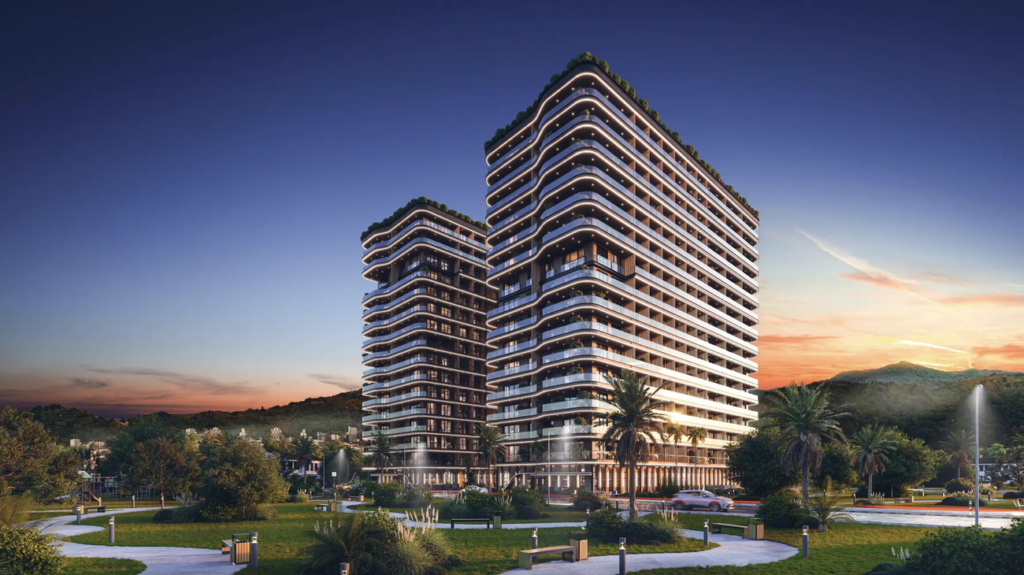
Secondary
Secondary housing appeals to those looking for more budget-friendly solutions, but there are a few features to consider.
- Low maintenance costs: Service charges may be lower as there are often no security services and other additional amenities.
- Risk of major overhaul: Secondary housing requires more frequent and thorough repairs. This may include replacing plumbing, electrical wiring and more, which certainly increases long-term costs.
- Lack of an organised HOA: Older housing stock often does not have an organised homeowners' association (HOA), which can lead to management chaos and problems with neighbours.
These aspects of the secondary need to be considered to avoid unexpected costs and problems in the future.
Understanding the differences between new-build and second homes will not only allow you to choose a convenient purchase option, but also to reduce potential financial burdens in the future.
How to reduce costs
Reducing your Georgia property maintenance costs is possible if you apply a few strategies to help optimise costs and make your home more economical.
Energy efficiency
Investing in energy efficiency can significantly reduce your utility bills.
- Installation of LED lighting: Using LED bulbs reduces energy consumption. It is a simple step that can reduce your energy bills.
- Double glazing and insulation: Replacing windows with double glazing and insulating the walls helps to keep you warm in the cold season and cool in the summer. These measures save on heating and air conditioning costs.
- Payback: Improvements made usually pay for themselves within a period of Ages 2-4You will then enjoy a reduction in your utility bills.
These improvements are not only beneficial, but also increase the comfort of living.
Owners' association
Creation homeowners' associations (HOAs) can significantly improve the manageability and control of apartment building maintenance costs.
- Tariff control: Tenants' associations allow for more effective control and regulation of maintenance tariffs.
- Direct work with suppliers: Negotiating directly with service providers can reduce costs through more favourable terms and rates.
Such measures are aimed at increasing transparency and reducing costs.
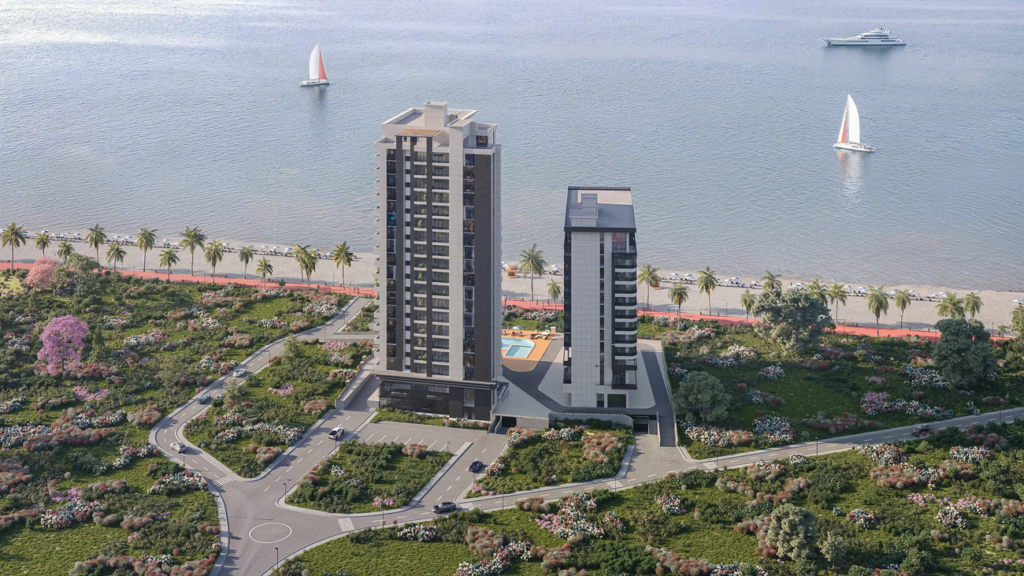
Comparison of suppliers
Comparing the offerings of different service providers can be helpful.
- Compare rates: Use resources such as GNERCTo assess the current electricity, water and gas tariffs and choose the most favourable ones.
- Change of tariff plan: In rare cases, it may be possible to change tariff plans or companies, which may be cost-effective.
These steps will help you find and choose more affordable solutions for your home.
These strategies provide an opportunity to not only save money, but to actively participate in managing your expenses by creating a more comfortable and efficient living environment.
Examples of content calculations
Understanding how much it really costs to maintain a property in Georgia will help you plan your budget more accurately and avoid unexpected expenses. Let's look at the approximate costs for a 60 m² flat in cities such as Tbilisi and Batumi.
Utilities
For this flat, monthly utility costs may vary depending on individual needs and rates:
- Electricity: Approximately 20-30 $depending on energy consumption.
- Water: About. 5-10 $depending on the use.
- Gas: In winter, they can reach 30-40 $ for heating.
- Rubbish removal: Approximately 2-3 $.
Taxes and insurance
Annual tax and insurance costs:
- Property tax: For a flat in Tbilisi, approximately 100-200 $ per year. Calculated as a percentage of the assessed value.
- Property insurance: On average, it ranges from 0.1 to 0.5% of the value of the property. For example, for a flat costing 50,000 $ this would be 50-250 $ per year.
Approximate table of costs
| Category | Monthly costs ($) | Annual expenditure ($) |
|---|---|---|
| Utilities | 57-83 | - |
| Property tax | - | 100-200 |
| Insurance | - | 50-250 |
This table gives an idea of typical costs, but the actual cost may vary depending on individual preferences and consumption levels. By knowing the approximate figures, you can budget your costs in Georgia more accurately and avoid unexpected financial burdens.
🔗 Useful links
- Official website of the Revenue Service of Georgia
Here you can find information on taxes, filing returns, business registration and access to online services for taxpayers in Georgia - Electricity tariffs in Georgia - GNERC
This page presents the current electricity tariffs for different categories of consumers in Georgia set by the GNERC Regulatory Commission. - Silknet - Official website of the telecommunications company
The Silknet website provides information on internet services, mobile phones, TV and tariffs in Georgia. - MagtiCom official website
On the site you can find out about mobile, internet and TV services from the Georgian operator MagtiCom, as well as activate tariffs and top up your balance. - ARDI Insurance Company
On the website of ARDI insurance company you can familiarise yourself with the types of insurance, calculate the cost of the policy and take out insurance online. - Official website of GPI Holding
On the website you can find out about GPI Holding's insurance products, apply for a policy online and get information about insurance services for individuals and legal entities. - Official website of the State Security Service of Georgia (SSG)
The site provides information on the activities, news, legislation and structures of the State Security Service of Georgia. - Georgian National Tourism Administration
This site provides information on travel destinations, attractions and services for Georgia travellers.
Conclusion
As we conclude our discussion on property maintenance in Georgia, it is important to summarise the main aspects that will help owners to take a more informed approach to managing their assets. Whether your property is a flat, flat or private house, understanding the true cost of maintenance will help you avoid unexpected costs and unpleasant surprises.
A property owner in Georgia should be prepared to mortgage a minimum of 800-1200 USD per year for basic expenses such as utilities, taxes and insurance. However, if you are considering your property as an investment, the amount can increase significantly. Taking into account all the associated costs will allow you to maximise your benefits and avoid unwanted financial burdens.
Looking for the perfect property in Georgia? Let us help!
Leave a request on our website and our experts will find the best option for you, taking into account all your wishes and budget. We will offer you customised solutions and guide you through every step of the purchase process.
